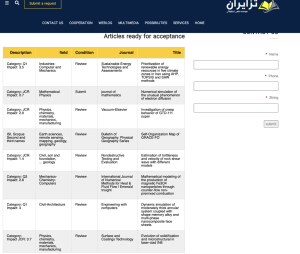
Would you consider a donation to support Weekend Reads, and our daily work?
The week at Retraction Watch featured:
- Paper with authorship posted for sale retracted over a year after Retraction Watch report
- Five years on, convicted transplant surgeon earns expressions of concern from Lancet
- Harvard surgeon has five papers pulled following internal investigation
- Exclusive: Prof stole former student’s identity to edit two journal special issues
Our list of retracted or withdrawn COVID-19 papers is up to more than 300. There are more than 38,000 retractions in our database — which powers retraction alerts in EndNote, LibKey, Papers, and Zotero. And have you seen our leaderboard of authors with the most retractions lately — or our list of top 10 most highly cited retracted papers?
Here’s what was happening elsewhere (some of these items may be paywalled, metered access, or require free registration to read):
Continue reading Weekend reads: More allegations about Stanford president; a plagiarizing rabbi; costly spreadsheet mistakes






